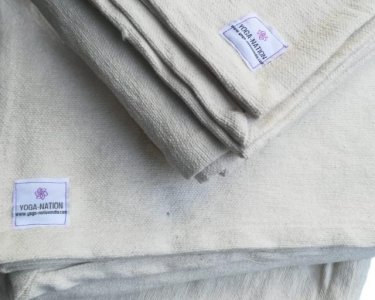Search Results for "jersey" in "Jersey" on Export Portal
Active Filters
-
Keywords:
-
Country:
- Clear all
New Search
Couldn't find the product you want?
Fill out this form to request the product.
Exports

Jersey (officially the Bailiwick of Jersey) is a Crown dependency of the United Kingdom, ruled by the Crown in right of Jersey, off the coast of Normandy, France.
The independent economy of the country was built up after separating from the Duchy of Normandy. In that period of time the UK played a very important role in setting up the island’s international relationships, regarding the worldwide trade.
Jersey started to gain its position on the international market after the living standards improvement. The roads were constructed to connect the island with St. Helier harbor, the main trade connector. Farmers in previously isolated valleys were able to transport crops grown in the island's microclimate swiftly to waiting ships, and then on to the markets of London and Paris ahead of the competition.
Until the nineteenth century, cider was the largest agricultural export with up to a quarter of the agricultural land given over to orchards. In 1839, 268,199 gallons of cider were exported to England alone, but by 1870, when beer became a more popular drink, cider exports from Jersey had slumped to 4632 gallons.
Jersey’s economy is based on import and export of different goods, as well as on tourism, hospitality, retail and wholesales, construction and agriculture.
Nowadays, the country focuses on agriculture and fishery development. It exports large consignments of fish in Europe as well as in South and North America. Jersey exports fish, crustaceans and aquatic invertebrates, mollusks, coral calcium and cod-liver oil.
As the climate is beneficiary for growing cattle, the country exports meat and meat products, eggs and eggs products as well as milk.
Jersey is considered the UK supplier of light industrial goods, electrical goods, petroleum, hydro power and textiles.
The main partners of Jersey are The United Kingdom, The United States of America, France and Brazil.
Customs requirements of Jersey
Jersey Customs & Immigration Service (JCIS)
Website: https://www.customs.gst.gov.je
Email: customs@gov.je
Address: Jersey Customs & Immigration Service , Maritime House, La Route du Port Elizabeth, St Helier, Jersey, JE1 1JD
Phone: +44 01534 448000
Fax: +44 01534 448034
Jersey Customs & Immigration Service (JCIS) provides a strong and effective border control to protect Jersey from illegal immigration, the movement of prohibited or restricted goods, and loss of revenue from duty and tax evasion on imports.
JCIS has the following roles:
- collecting customs and excise duties;
- collecting GST on imported goods;
- controlling drug trafficking by detecting smuggling attempts, prosecuting the organisers and confiscating profits.
Tariffs
Three different duties and taxes are collected on imported goods:
- Goods and Services Tax (GST) at 5%;
- Excise duty on alcohol, tobacco and fuel;
- Common Customs Tariff (CCT). This is charged on all goods imported from outisde the European Union (EU).
Import Requirements and Documentation
For the successful importation of products into Jersey, the local partner/office must have the following documents:
- Charter of the company (notarized);
- Certificate of registration from the Statistical Department (notarized copy);
- Certificate of registration from the Ministry of Justice of Jersey (notarized copy);
- Taxpayer identification number with registration form of the taxpayer (notarized copy);
- An official document from the bank confirming the presence of an account (original);
- An official document from the tax inspectorate confirming company's good standing (original);
- Completed documentation concerning company's foreign trade activities;
- Warranty for the right of cargo handling in customs sphere (original);
- Passport of the person who is in charge of customs clearing.
Additionally, when imported goods arrive in country, the local counterpart must have the following documents at hand:
- Contract between the local and the international company;
- Invoice;
- Certificate of origination from the sending country.
Labelling
Labels on most foods must show:
- product name (generic and trade);
- type of product;
- dates of manufacture;
- expiry dates;
- methods of preservation;
- ingredients in descending order of composition;
- weights or quantities;
- manufacturer's name;
- importer's name, address and phone number;
- places where the product can be returned or exchanged.
Sources:





























